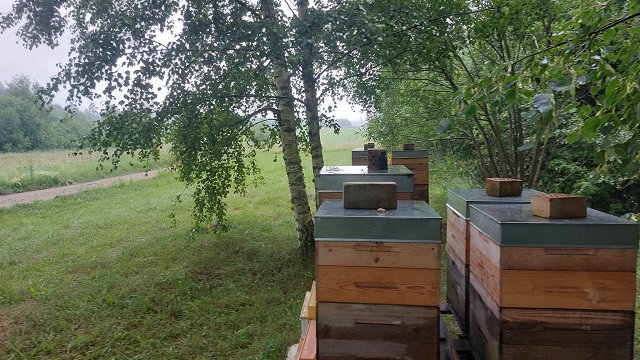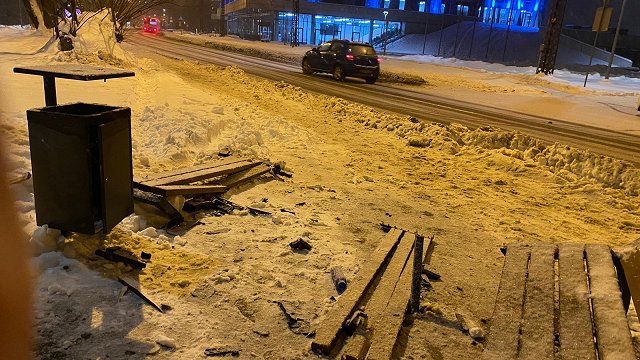Igors and his companions have been fishing in the Daugava for many years. He starts his story by pointing out that he cares for nature and always carries a trash bag to collect whatever rubbish is produced by himself and also others. "I love nature, nobody pays me for it [cleaning up]. But who else is going to pick it up if not us?" said Igors.
The fisherman pointed out that rubbish accumulates not only on the banks of the Daugava but also in the water. He demonstrated to 4. studija with a fishing rod he had brought with him that there is serious pollution lurking in the bed of the Daugava. Rags looking like wet wipes were quickly pulled out of the river.
"If you are bottom fishing, you can pull out three rags at once with one cast, but if you are casting with a spinning rod closer to the shore, every second or third cast is a rag," Igors said.
Wet wipes that end up in the environment are more dangerous than they look because they contain plastic fibers which, unlike paper wipes, do not dissolve in water. They can be compared to plastic bottles, which do not break down in landfill. Now they have ended up in the River Daugava in large quantities.
"Unintentional, coincidental, but if you get a whole bag of them in 24 hours, and it's constant, it's clear that something is not clean, someone is tossing them in," said Igors. The fisherman suspects that the culprits should be found at the Road Safety Directorate (CSDD), the area where the technical inspection is carried out.
CSDD spokesman Mārtiņš Mālmeisters denied this possibility and explained that technical inspectors only use paper towels in their work:
"They wash their dirty hands with special soap and throw the dirty paper towels out by the sink. And another, most important aspect is that sewage water is not discharged into the Daugava, but straight to the treatment plant where the dirty water is treated."
4. studija went to investigate and found out that pink paper towels are indeed used at the inspection station, which means that the polluter of the Daugava lives elsewhere. There are also several production sites in the area.
The program asked the Rīga water management company "Rīgas ūdens" for help in resolving the situation, which in turn urged them to contact the Riga City Council's Department of Outdoors and Mobility, which maintains the city's rainwater drainage system. There was no response, only a suggestion to contact the State Environmental Service (VVD).
Kalvis Avotiņš, Director of the Lielrīga Regional Environmental Directorate of the VVD, said that there are two rainwater sewer outlets at the site:
"It is possible that through illegal connections these wipes have got into the system and have been carried out into this channel during rainfall. The other option is the garden areas on the opposite side of the canal with decentralized sewerage systems and potential outlets."
The VVD stressed that this is, however, the responsibility of the Riga City Council. The Department of Housing and Environment controls the operation of decentralized sewerage systems in the city and the Department of Outdoors and Mobility will have to check whether there are any illegal connections to the network.
The Riga City Council promises to take action.
"Those rags and napkins could just as well have been dumped by someone from the sewage barrel, or just dumped in the river, or dumped in the rainwater drain. So it's virtually impossible to find out where they came from. In this case, the Department of Housing and Environment will inspect the site and see if any cleaning is needed," said Mārtiņš Vilemsons, Acting Head of the Riga City Council's External Communications Department.
Meanwhile, Rīgas ūdens reminded the public that a toilet bowl is not a trash can either: wet wipes also cause problems in household sewers. In buildings, they can block internal sewer lines with all the consequences that this entails, while in "Rīgas ūdens" systems they can hamper the operation of sewage pumping stations and put additional strain on them, while in more severe cases there is also a risk of damage to mechanical equipment.































